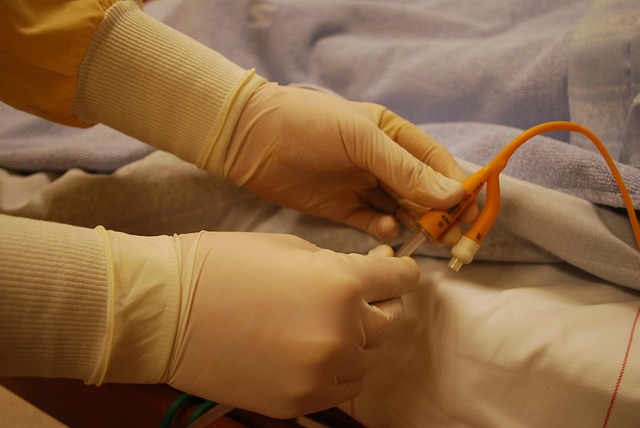Exploring Paramedic-to-RN Bridge Programs: A Path for EMS Professionals to Grow in Healthcare
Working as a paramedic and considering the next career move? Many EMS professionals explore paramedic-to-RN bridge programs as a flexible way to build on their experience and advance in healthcare without leaving their current roles. Discover how this path may work for you. Learn more inside.

What are paramedic to RN programs?
Paramedic to RN bridge programs are specialized educational pathways designed to help experienced paramedics transition into registered nursing roles. These programs recognize the significant medical knowledge and clinical skills that paramedics already possess, allowing them to complete RN training in less time than traditional nursing programs. Typically, these bridge programs focus on filling the gaps between paramedic and nursing education, covering areas such as long-term patient care, medication administration, and the broader scope of nursing practice.
How do bridge programs for paramedics work?
Bridge programs for paramedics are structured to build upon existing EMS skills while introducing new nursing concepts. Most programs begin with an assessment of the paramedic’s current knowledge and skills. From there, coursework is tailored to cover the additional areas required for nursing practice. This often includes:
-
Advanced anatomy and physiology
-
Nursing theory and patient care models
-
Pharmacology from a nursing perspective
-
Mental health and community nursing
-
Leadership and management in healthcare settings
Clinical rotations are also a crucial component, allowing paramedics to apply their new nursing skills in various healthcare settings. These programs typically take 12-24 months to complete, depending on whether they lead to an Associate’s or Bachelor’s degree in nursing.
What are the benefits of EMS to nursing transition?
The transition from EMS to nursing offers numerous benefits for healthcare professionals seeking career advancement:
-
Expanded scope of practice: As an RN, you’ll have a broader range of responsibilities and the ability to work in diverse healthcare settings.
-
Increased earning potential: Registered nurses often earn higher salaries compared to paramedics.
-
Career stability: The demand for nurses remains consistently high across the healthcare industry.
-
Specialization opportunities: Nursing offers various specialties to pursue, from critical care to pediatrics.
-
Leadership roles: RNs have more opportunities to move into management and administrative positions.
-
Continuity of care: Unlike the episodic nature of EMS work, nursing allows for ongoing patient relationships and care management.
How do nursing programs for paramedics differ from traditional nursing education?
Nursing programs for paramedics are tailored to build upon the existing knowledge and skills of EMS professionals. Key differences include:
-
Accelerated timeline: Bridge programs are typically shorter than traditional nursing programs due to credit for prior learning and experience.
-
Focused curriculum: Courses concentrate on bridging the gap between paramedic and nursing practice rather than starting from scratch.
-
Flexible scheduling: Many programs offer part-time or online options to accommodate working paramedics.
-
Emphasis on transition: These programs specifically address the shift from emergency-focused care to a broader nursing perspective.
-
Advanced starting point: Paramedics enter with a strong foundation in emergency medicine, allowing for more in-depth exploration of nursing concepts.
What are the career prospects after completing a paramedic to RN program?
Graduates of paramedic to RN bridge programs enjoy diverse career opportunities within the healthcare field. Some common career paths include:
-
Emergency Department RN
-
Critical Care Nurse
-
Flight Nurse
-
Trauma Nurse
-
Nurse Educator
-
Community Health Nurse
-
Healthcare Administrator
| Program Type | Typical Duration | Degree Earned | Estimated Cost Range |
|---|---|---|---|
| Associate’s Degree | 12-18 months | ADN | $5,000 - $25,000 |
| Bachelor’s Degree | 18-24 months | BSN | $20,000 - $80,000 |
| Online Bridge Program | 12-24 months | ADN or BSN | $10,000 - $50,000 |
Prices, rates, or cost estimates mentioned in this article are based on the latest available information but may change over time. Independent research is advised before making financial decisions.
The transition from paramedic to registered nurse offers a compelling path for EMS professionals seeking to advance their healthcare careers. Paramedic to RN bridge programs provide a streamlined educational route that respects and builds upon existing medical knowledge and skills. By completing these specialized nursing programs, paramedics can expand their scope of practice, increase their earning potential, and open doors to a wide range of career opportunities within the healthcare industry. As the demand for skilled nursing professionals continues to grow, this career path offers both personal fulfillment and professional stability for those ready to take the next step in their healthcare journey.
This article is for informational purposes only and should not be considered medical advice. Please consult a qualified healthcare professional for personalized guidance and treatment.




